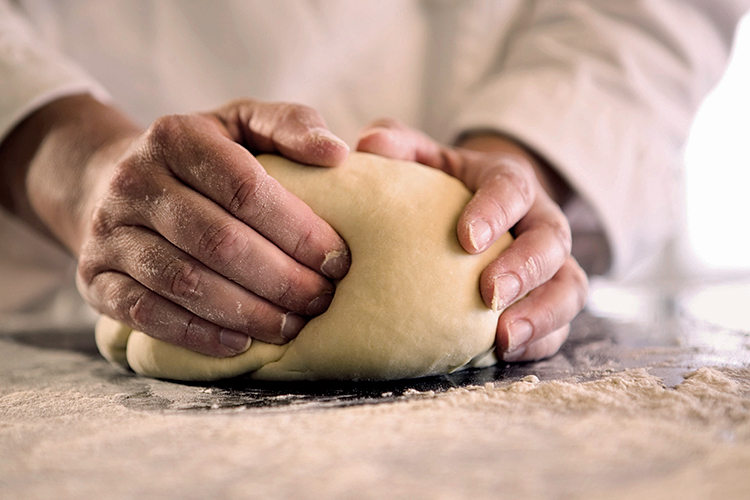Food technology can play a huge role in helping bakers and manufacturers add value to their products and strengthen them with claims — while also keeping a close eye on costs.
Take on-shelf freshness, for example. Producers of baked goods who can extend the on-shelf freshness of their products to 14, or even 21, days are at a huge advantage over producers who can’t.
But shelf life shouldn’t just be measured on an in-store basis if you’re really looking to add value.
“It’s also extending the time the consumer gets it at home,” said Jennifer Halliburton, senior manager of market insights for Lenexa, Kan.-based Corbion. “It still gives them an opportunity to have baked products in their pantry for potentially another week.”
Corbion has innovative ways for bakers and manufacturers to differentiate themselves. One way is with Corbion’s Ultra Fresh® portfolio, it’s a simple way to maintain the freshness consumers expect from the store to their pantries while also helping companies save money, which is important in today’s inflationary climate.
“Ultra Fresh® cuts the added sugar in products, which is a cost saving for manufacturers,” said Yanling Yin, Corbion’s R&D director. “It may not change the nutritional value, but it could help cut the bowl cost.”
In today’s tight labor market, technology can also play a huge role in helping manufacturers stay efficient and meet production goals. Solutions like Corbion’s Pristine® 3000 dough conditioning system make having a less-skilled labor force less of a hurdle.
Pristine® 3000 minimizes waste during production, offering process tolerance on any type of production line. The waste is minimized because the dough is so robust, it’s able to go through a wide variety of processes.
Maintaining perspective
Balancing short-term necessities during the Covid Era with longer-term goals is the million-dollar question for many bakers and manufacturers — literally.
“Things are moving so fast, and the supply chain is still in disruption — day to day, it seems,” said Jennifer Lindsey, vice president of global marketing SFS for Corbion. “Across the value chain, there are daily fires that are being fought. It’s hard to think long-term when you’re just trying to get through the day or week.”
That said, companies always need to keep their eyes simultaneously on their long-term strategic goals —for instance, what their brand identity is and what it represents to the consumer.
That doesn’t mean you can’t be flexible when necessary to keep supply moving into the market. But it does mean leaning on your trusted partners you can reach out to and rely on to work through whatever issues arise.
“These truly are unprecedented times,” Lindsey said. “Partnership along the value chain is the only way to get through this. The open dialogues need to happen, and the business negotiations of the past simply no longer hold.”
Transparency and flexibility are the tools that will get bakers and manufacturers through their short-term challenges and keep them focused on long-term strategy.
One example of those tools being put to good use, and of having the right kind of partner to help get you through the tough times in today’s or any other era’s market environment, is Corbion’s tech service team.
Whether it’s a reformulation challenge, a supply chain disruption or a host of other issues, the breadth and depth of the tech service team’s knowledge, coupled with the Corbion applications team, is where customers can see the “value multiplier effect” of choosing Corbion (in addition to the ingredient solutions).
That value proposition can include literal bottom-line value for the baker or manufacturer.
“Costs are going through the roof — everywhere,” Lindsey said. “We can help adjust formulas to cost-optimize. In today’s environment, optimizing means that we can get you to the best cost base attainable at the time.”
Maybe that’s at parity, or maybe it’s minimizing the bowl increases. Whatever it is your company needs, the Corbion tech service team’s knowledge goes beyond just its ingredients.
The omnichannel influence
Private labeling, ecommerce and other disruptive factors have forever changed how bakers and manufacturers think about branding.
The omnichannel consumer is here to stay. And because of the pandemic, the demographics of ecommerce have expanded to include older consumers who were previously less digital savvy.
One of the biggest challenges is that producers can’t rely as much on the impulse buy opportunities that formerly occurred only in person at brick-and-mortar. And it goes without saying that when you’re looking at a baked good on a screen instead of in person, you can’t capture other sensory cues.
Because they can’t gather that sensory information when they’re shopping online, consumers seek out other forms of information. One is attributes — what qualities does your product have that differentiates it and that can be easily found by an online shopper.
For starters, include those key attributes both online and on the front of pack, where they can help the click-happy shopper find products that contain the key attributes they are seeking.
Make your product easy to find online and remember that every retailer has its own online system — there is no one way of doing it. That makes keyword attributes that are searchable essential.


